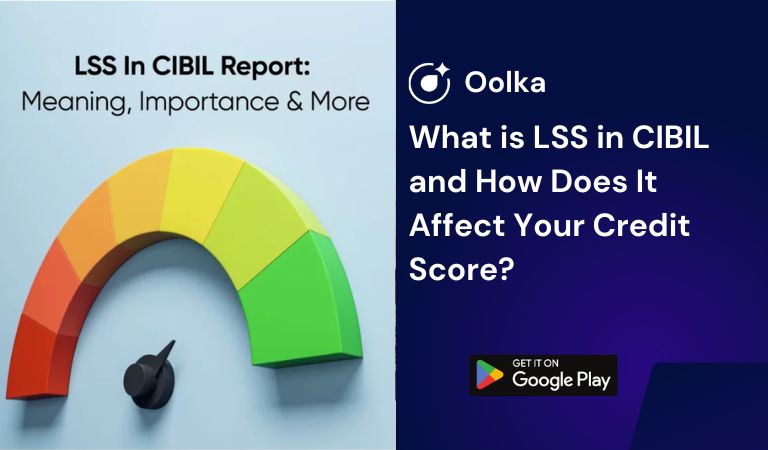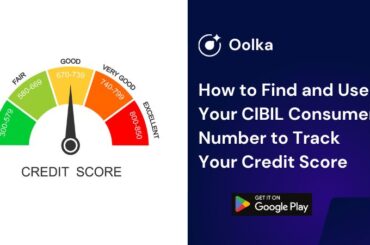When it comes to determining your credit health, most people look at their CIBIL score. However, there is a lesser-known factor that plays a major role in establishing your creditworthiness with lenders. This is known as LSS (Lender Settled Status). If you’ve ever settled a loan or credit card dues for less than the total amount owed, LSS could be affecting your financial profile more than you actually think.
What is LSS in CIBIL?
LSS (Lender Settled Status) will be reflected in your CIBIL report if a lender and borrower decide to settle a loan or credit card account for an amount less than what is owed. This usually means that the borrower does not have enough funds to pay the entire outstanding amount. Thus, the lender agrees to accept a partial payment as full and final settlement. Once that state has been reached, your report will show the account has the status of “Settled” not “Closed.”
Why Is LSS Important?
LSS notifies future lenders that they have not been able to meet the original repayment terms of a loan, and although the debt is marked as settled, it indicates a risk profile that prevents lenders from offering you new credit. In other words, lenders simply use the LSS status to mark your inability to clear dues and remain financially secure.
How Is LSS in CIBIL Calculated?
It’s important to clarify that LSS (Lender Settled Status) is not a calculated score—instead, it’s a status update or remark that appears in your credit report. It’s based on the data provided by lenders to CIBIL (Credit Information Bureau India Limited).
Here’s how it works:
- When you default on a loan or credit card payment, and you’re unable to pay the full outstanding amount, your lender might offer a settlement option.
- This settlement is an agreement between you and the lender where you agree to pay a portion of the total dues.
- Once the agreed amount is paid, the lender marks the account as “Settled” and reports this to CIBIL.
- CIBIL then updates your credit report with this remark in the Account Status section.
What To Do After an LSS Remark?
Contact the Lender
Get in touch with the bank or financial institution that marked the account “settled.” Request the remaining balance that needs to be paid to change the status of the account to “Closed.”
Pay the Dues in Full
If you are able to, pay the remaining amount in full. This is a signal to the lender that you can be financially disciplined and maybe help build some level of trust with the lender.
Request for a No Dues Certificate (NDC)
When the payment is made to settle your loan, obtain a NDC from the lender. This is evidence that your dues are cleared and the account can be settled.
Raise a Dispute
Head to the CIBIL website and file your request. Here you can attach the NDC with a proof of the payment. You can also request CIBIL to update your status accordingly.
Monitor Your Report
You should also keep checking your report from time to time to check whether the status has been updated correctly. It usually takes between 30 to 60 days for the changes to appear.
How Does LSS in CIBIL Affect Your Credit Score?
Credit Score Drop: A settlement leads to a drop in your credit score. This can range from 75 to 150 points, based on your report.
Can Stick Around for 7 Years: The note might remain on your credit report for 7 years even after you’ve paid off the debts.
Loan Rejections: When banks turn down loan requests, they prefer what they call “Closed” or “Standard” status. Some lenders accept “Settled” status for unsecured loans or credit cards.
Steps to Improve Your LSS in CIBIL
- Repay the Balance Amount
Reach out to the lender and offer to pay the remaining amount. Try to convert the account to a “Closed” status. - Request Status Update
After payment, get a confirmation or No Dues Certificate and formally ask the lender to update your account status with CIBIL. - Dispute Incorrect Entries
If your report shows a “Settled” remark incorrectly, file a dispute through the CIBIL website and submit relevant documents. - Use Secured Credit Cards
Apply for a secured credit card backed by a fixed deposit. Use it responsibly to rebuild your credit. - Maintain Timely Payments
Pay your current EMIs, credit card bills, and loans on time, every time. - Limit Credit Utilization
Try to keep your credit utilization ratio below 30% of your total available limit. - Avoid Multiple Loan Applications
Each loan or card inquiry results in a hard pull on your credit. Too many can hurt your score further.
Common Misconceptions About LSS in CIBIL
There are several misunderstandings around LSS. Let’s bust a few of the most common myths:
- Myth: A “Settled” status means I’m debt-free.
Truth: It means you paid part of the dues. The lender forgave the rest, but it still counts as a negative credit event. - Myth: A good credit score will cancel out a “Settled” remark.
Truth: Lenders look at both your score and report history. A settled remark may still lead to rejection, even if the score is high. - Myth: LSS status is automatically removed after a few years.
Truth: It remains for up to 7 years, unless you actively take steps to clear the dues and request a status update. - Myth: Settlement won’t impact future loans.
Truth: A settled status shows you didn’t meet your original financial obligation. This makes lenders cautious, especially with personal and unsecured loans. - Myth: There’s no way to fix a “Settled” status.
Truth: You can convert a “Settled” status to “Closed” by paying the remaining balance and updating your report.
FAQs
Q: What is LSS in CIBIL, and how does it differ from a credit score?
A: LSS (Lender Settled Status) is a remark showing you settled a loan for less than what was owed. A credit score is a number between 300-900 representing your creditworthiness.
Q: How do I know my LSS status on CIBIL reports?
A: Check your CIBIL report under the “Account Information” section. If any loan shows “Settled” instead of “Closed,” that is your LSS.
Q: Does LSS in CIBIL really have an impact on personal loan application acceptance?
A: Yes. Most lenders view it as a risk factor, and it can lead to rejections or higher interest rates.
Q: Is there a way to recover my LSS in case it is low?
A: Yes. Pay the remaining dues, request a “Closed” status, and build positive credit behavior over time.
Understanding LSS in CIBIL is crucial for maintaining a healthy credit profile. While it’s possible to settle loans in tough financial times, knowing the long-term impact on your credit report can help you make better decisions. Always aim to pay off dues in full, and if you’ve already settled, take proactive steps to correct your credit history. A clean report is your best ally for financial freedom.






